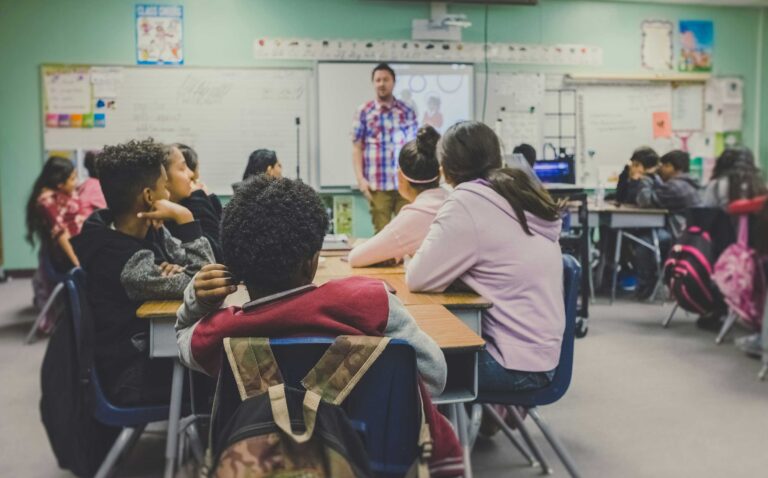Adolescence is full of shifting relationship dynamics—most of us remember how hard it was as a young person to say goodbye to someone we cared about after a breakup, a big fight with a friend, or a loved one passing away. The current young generation—Generation Z—is facing these normal coming-of-age challenges on top of the frequent grief that comes with living in modern society. Youth these days are experiencing tremendous, and often consistent, losses as they grow up during a pandemic, regular mass shootings, and increasing rates of youth suicide and domestic violence.
Fast Facts
- In the first 15 months of COVID-19, over 140,000 children in the U.S. lost a primary or secondary caregiver.
- 65% of the youth who have lost a primary caregiver due to COVID-19 are Black, Indigenous, and/or people of color (BIPOC). Compared to white children, Indigenous children were 4.5 times more likely to lose a parent or grandparent, Black children were 2.4 times more likely, and Hispanic children were 1.8 times more likely.
- LGBTQ+ youth are 120% more likely to experience homelessness than their straight and cisgender peers, primarily because of rejection by and loss of their family of origin (the family unit who originally cared for them as a child).
- More young people are dying, which means more youth and communities are grieving.
- Firearm-related deaths among children and adolescents increased 30% between 2019 and 2020.
- The suicide rate for youth aged 10-14 nearly tripled between 2007 and 2017.
- In 2019, nearly 9% of high school students said they had attempted suicide at least once in the previous 12 months.
- Fatal overdoses among adolescents increased by 94% from 2019 to 2020.
How Loss and Grief Impact Youth
Everyone handles loss in their own way, and youth are no different. Their reactions can depend on many things, like age, gender, personality, type of loss, relation to the person lost, amount of support around them, and more. But they will all need consistent attention, reassurance, and care as they adjust.
Common Signs of Grief in Youth
Ages 5-12
Elementary and middle school-aged children may struggle to understand loss, whether it comes through death or other change. Look for these signs:
- Self-blame for the loss
- Distracted, forgetful
- Increased anxiety (often related to loss—fear of others dying, friends abandoning them, the future)
- Increased attachment to caregiver(s)
- Avoidance of school
- Physical symptoms (especially stomachache and headache)
- Withdrawal from usual activities
- Behavior issues (aggression, tantrums, defiance)
- Changes in eating and sleeping habits
- Temporary regression in age-appropriate development (bed-wetting, baby talk, etc.)
Ages 13-18
Teenagers are already in a time of big change as they transition from kids to young adults. Grief can influence how they move from dependence on caregivers to independence. Look for these signs:
- Distracted, difficulty concentrating
- Withdrawal, needing more alone time
- Taking on adult responsibilities, taking care of those around them
- Difficulty expressing emotions
- Increased anxiety (often related to loss—fear of others dying, friends abandoning them, the future)
- Questions about death and dying
- Using jokes and humor to mask/minimize the loss
- Physical symptoms (especially stomachache and headache)
- Getting into trouble, risky behavior to escape or find comfort
- Temporary regression in age-appropriate development (independence, confidence)
- Strained relationships
- Worsening self-image, self-esteem, confidence
Supporting Youth Through Grief
- Validate their feelings and reassure them that they are safe. Loss is often confusing and can impact a young person’s sense of safety in the world, whether from physical harm and death or from abandonment and emotional pain. Lead with comforting them and acknowledging how hard this must be. Reestablishing safety isn’t a quick process but reminding them that one loss doesn’t mean others will follow is a good start.
- Maintain routine, structure, and clear expectations. Young people often rely on the adults in their life to help them stay regulated, especially during times of significant change. Help them stay consistent with their typical daily activities and schedule and avoid other unnecessary changes until you notice them starting to return to their old self.
- Answer questions honestly. Kids have active imaginations and are likely to start filling in the details they don’t have as they try to navigate a loss. Listen to their thoughts and questions, and don’t be afraid to get sad or say that you don’t know. Young people need to hear the truth from someone they trust.
- Remember that different cultures and families have different views of death and mourning. Children will likely process grief based on how the people around them handle loss. They usually pick this up from family members but may also have ideas about grief from their peers or media. If a child is struggling, allow them to process the loss in the way that comes naturally to them—as long as it’s not harmful to themselves or others. Connect with the child’s other communities (school, family, place of worship, neighborhood, etc.) if you need help facilitating healing.
- Help connect them to professional help. Additional assistance is never a bad idea, and resources like counselors or support groups can help youth feel less alone in their grief. Check out the National Alliance for Children’s Grief to find services in your area.
If you or someone you know is struggling or in crisis, help is available. Call 988 or chat 988lifeline.org. You can also reach Crisis Text Line by texting MHA to 741741.


